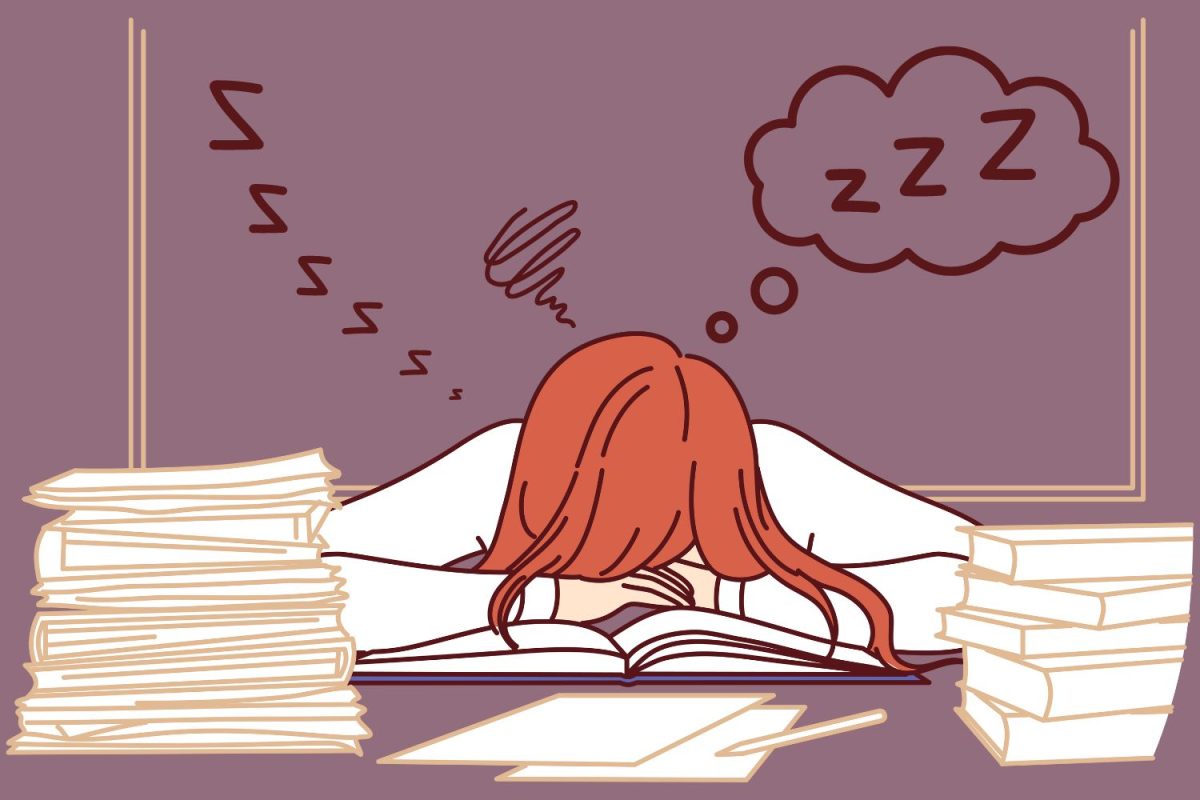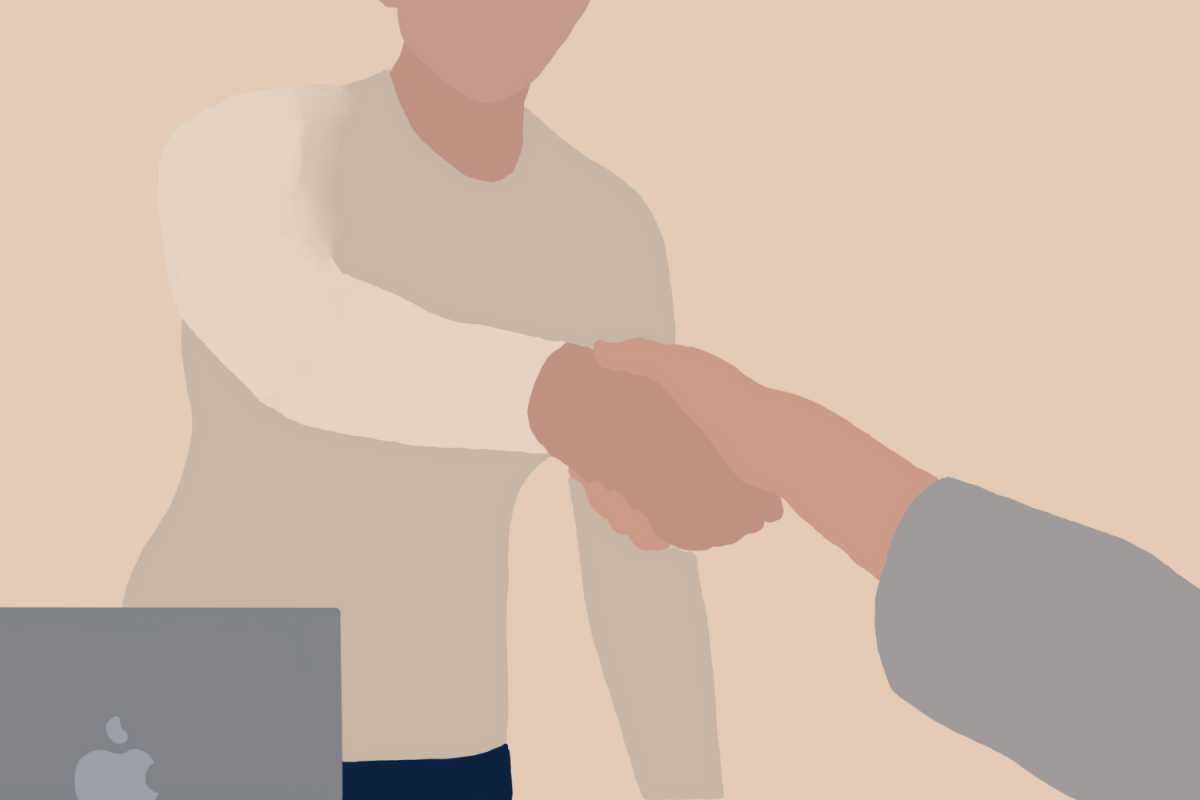As she was grabbing her bag and heading home on a Friday afternoon, Felicia Grable (’15) was interrupted by her friend asking if she wanted to come over. “My initial reaction was to be like, ‘Oh, no, I just want to go back to my house,’ because it was Friday and I like to be in my own space,” she said. But, “In the end I just said ‘sure, why not’.” Grable, like many others, defines herself as an introvert.
It wasn’t a dislike for her friend that caused apprehension in going to her house, it was simply her introverted nature. “There are just some times where I just want to be by myself and just do stuff that I like to do in my own self-contained bubble. I don’t feel the need to always be with people,” she said. Susan Cain, bestselling author of the self-help book Quiet: The Power of Introverts in a World That Can’t Stop Talking explores the nature of introverts in her book. “[Introverts] dislike small talk,” she said.
“[Introverts] process information about their environments-both physical and emotional–unusually deeply. They tend to notice subtleties that others miss,” she wrote.
Luke Ziegler (’17) has his own definition of being introverted. “Introversion is looking inwards, I suppose, [having] slightly less willingness to speak with others, not necessarily because of shyness or fear of judgment, but because of a preference of thinking in your own thoughts and doing things individually,” he said.
There is a common misconception that introverts are timid people who choose not to interact with others out of fear, however, most of of them prefer being alone. “I’m happy with being introverted. I don’t feel the need to have to be more social,” Grable said.
Most introverts are content the way they are and are introverted as a choice. “Just in general I don’t spend a lot of time socializing, I’m generally inward-focused, I like working alone,” Ziegler said.
He also, pointed out the drawbacks of being introverted at ASL. “I don’t think that ASL really tailors to introverts given that in ASL, participation is very important and it is also quite important to ask questions to teachers,” he said.
Risako Yoshioka (’15) shares a similar sentiment. “I think ASL is more tailored to extroverts. It’s focused on asserting yourself and giving opinions and discussions in class. It could be hard for people who think they’re more inclined to being introverted,” she said.
However, she also believes that this has something to do with American culture being more extroverted as a whole. “Talking from experience, I know, in Japan, people are more introverted, it’s more of a collectivistic culture where people think they share the same values so they don’t really feel a need to assert individual opinions,” she said. “In the American culture people are more assertive and express their opinions more.”
Mackenzie Reid (’16), considers herself an ambivert, neither wholly introverted nor extroverted, as she shares certain characteristics with both. At times choosing to listen instead of participating during Harkness discussions, Reid understands the hardships an introvert may experience during classes in which their grade depends on participation.
However, she thinks that teachers at this school will realize this and help students like her. “[In some classes] you do have to really speak to get a good grade for the class but I still think it’s fine because the teachers do notice when you’re an introvert versus an extrovert and they’ll help you with that,” she said.
English Department Head Meghan Tally agrees, saying teachers work to help students on an individual basis as opposed to rewarding the highest grades to those who dominate the conversation “English teachers work with all of our students to set small, manageable goals. Harkness is not about making everyone the same. It’s about cultivating both our speaking and our listening-particularly the one that’s harder for us,” she said.
However, Social Studies Teacher Jason Cancella believes that ASL is not equally tailored to both extroverts and introverts, “No [I don’t think that ASL tailors to introverts]. We require students to perform verbally and corroboratively in class through Harkness discussions, class presentations, labs and other group projects. In general we encourage and reward students and teachers for being extroverted.”
This kind of reluctance to participate felt at Harkness discussions transcends into other aspects of the more introverted people’s lives. Grable points out how introversion can lead to social self-consciousness as well as frustration with the more extroverted. “Extroverts are more confident it seems because they know that they’re more comfortable in social settings. Naturally they’re more talkative and will make more friends than an introvert, so it is a little intimidating,” she said.
Tally believes that a person has both introverted and extroverted features and that it is the environment we are exposed to that makes us cultivate one of our sides more than the other. “We all have introverted and extroverted selves, not that we are one or the other. Our families, environments and experiences teach us to cultivate some ways of being more than others,” she said.
Ziegler also noted that his introversion stems from his self-contained family dynamics. “My family is fairly reserved, and we like to keep our views inwards; we generally don’t speak any more than necessary,” he said.
Although Cancella believes that a person’s genetic modification plays a role in the way that person acts, he agrees with Tally in that their environment affects whether they are introverted or not. ”I think there are aspects of our personality that are significantly informed by our genes but that events in our lives, the way we were raised and free will also play a role in shaping how introverted or extroverted we become,” he said.
Despite the negative connotations with the word, many introverts are simply happy to be alone with their thoughts and interact on a more solitary level. “I’d say most of the people I hang out with are introverted as well, it’s not hard to find people who are introverted like you. We all like to go off and do our own things and then come together and talk about it,” Grable said. “It’s about allocating a time just for you to be by yourself. Be by yourself with your thoughts and to just be doing what you like to do.”
Ziegler is also pleased with being an introvert and feels like if he wanted to change his ways, he would be able to. “I feel like [being introverted] is a choice, I could choose to be even more introverted, or more extroverted as well if I wanted to, and if I made an effort to change myself in certain ways to speak more or less, but I think that it’s a choice and I’m happy where I am now.”







